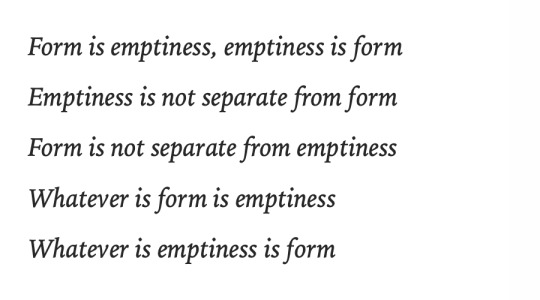#Zen Buddhism
Text

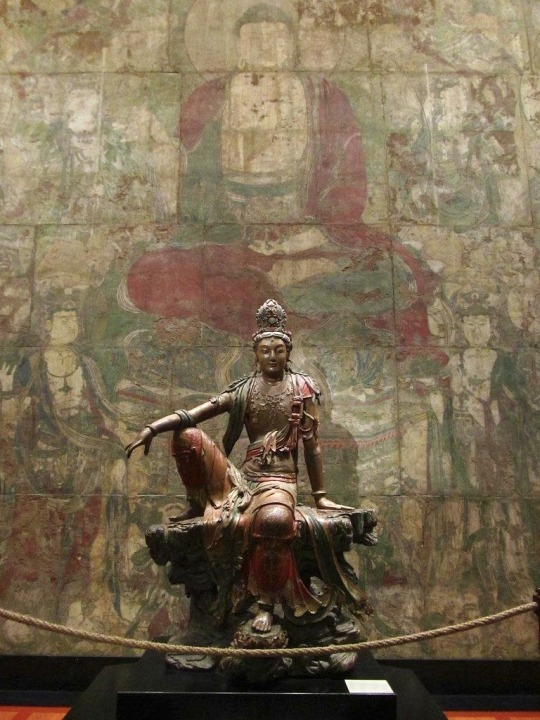
Guanyin of the Southern Sea
A wood statue of the Chinese-Buddhist deity Guanyin. Made during the Liao (916–1125) or Jin (1115–1234) dynasties.
It’s currently located in The Nelson-Atkins Museum of Art, Kansas City, Missouri.
#china#chinese culture#chinese history#east asia#Buddhism#Chinese Buddhism#zen buddhism#guanyin#museum#artifact#wood statues#statues#Buddhist deity#medieval china#ancient china
461 notes
·
View notes
Text
In meditation we pay attention to our internal language so we can break free of the belief that our story is the one true picture of the way things are.
— Nothing Holy About It: The Zen of Being Just Who You Are by Tim Burkett
212 notes
·
View notes
Text
Even though as George Lucas said, Jedi Knights are not "celibate", I believe this quote from the great Vietnamese Zen Buddhist monk and teacher, Thich Nhat Hanh could be useful when it comes to the Jedi practice of avoiding marriages, and can shed a new light to the overall story of Obi-Wan & Satine and Anakin & Padmé.
"As a monastic you lead a life of monastic celibacy and community, and if the one you love realizes that, she will not suffer and you will not suffer, because love is much more than having a sexual relationship. Because of great love you can sacrifice that aspect of love, and your love becomes much greater. That nourishes you, that nourishes the other person, and finally your love will have no limit. That is the Buddha’s love." - Thich Nhat Hanh
It might worth to examine those love stories from this perspective, considering that Obi-Wan said to Anakin in Clone Wars: "It's not that we are not allowed to have these feelings. It's natural." even though he said, the relationship between Anakin and Padmé must not go beyond friendship, and what Lucas had to say on this: "Jedi Knights aren't celibate - the thing that is forbidden is attachments - and possessive relationships." and "So you have to learn to give up everything. And ultimately for a Jedi Knight, it’s very easy to give up. One of the things they give up is marriage. They can still love people. But they can’t possess them." and "A Jedi is never lonely. They live on compassion. They live on helping people, and people love them. They can love people back."
#obi wan x satine#anakin and padmé#star wars#George lucas#thich nhat hanh#buddhism#zen buddhism#obi wan kenobi#satine kryze#obitine#anidala
721 notes
·
View notes
Text

The sacred grounds of Eiheiji Temple (永平寺) in Eiheiji Town, Fukui Prefecture
Photo by 小野悦史 [Ono Etsushi] in 2021
216 notes
·
View notes
Text
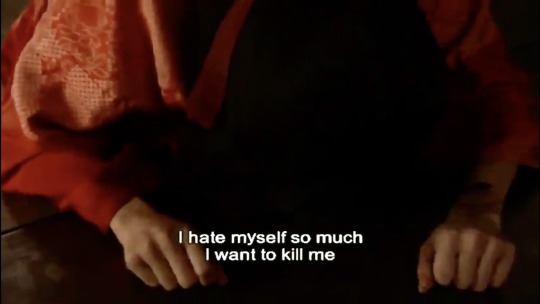
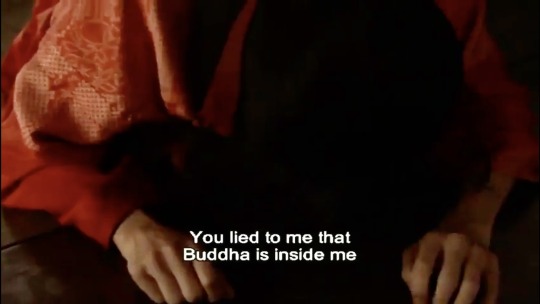

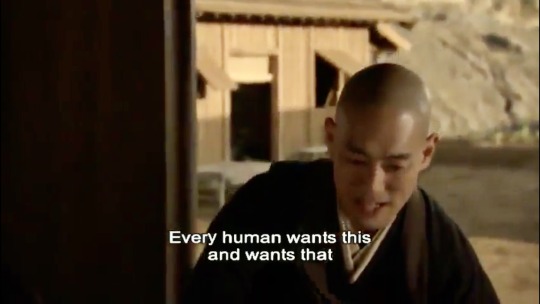

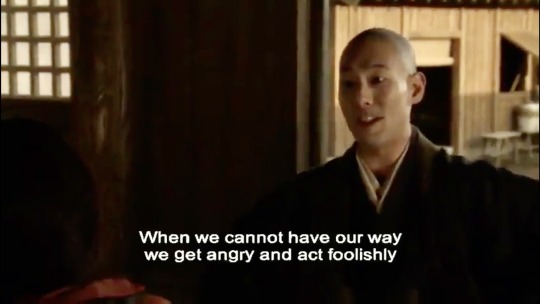
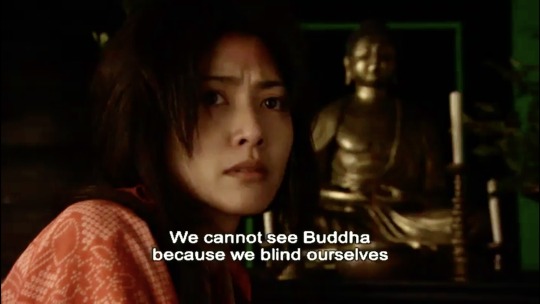

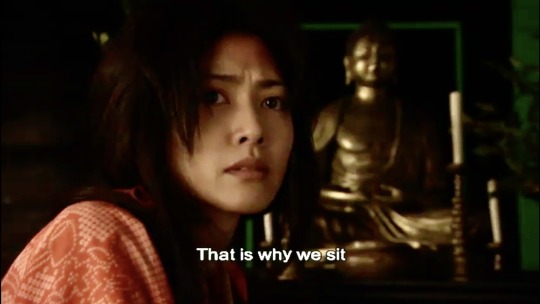
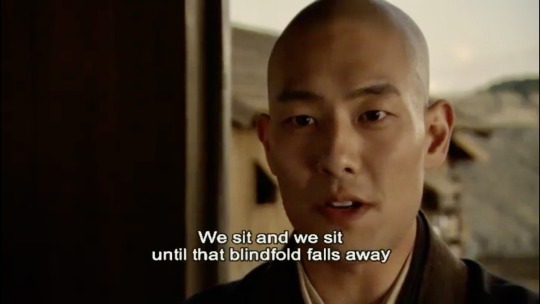

Zen (2009)
#zen#禅#nakamura kankuro#uchida yuki#kankuro nakamura#yuki uchida#japanese movie#j movie#japanese film#japanese drama#j drama#jdrama#asian drama#asian movie#zen buddhism#zazen#japan#buddha#buddhism
80 notes
·
View notes
Text
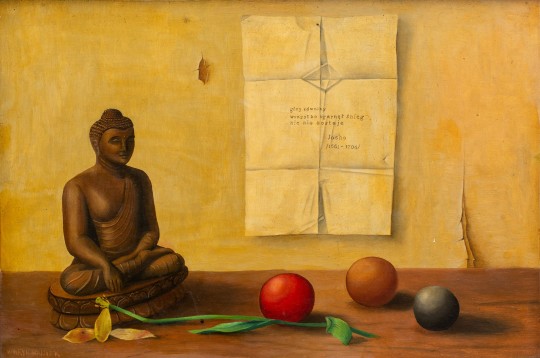
Henryk Waniek — Still Life (oil on wood panel, 1972)
51 notes
·
View notes
Text
Stumbled upon this beautiful sculpture on my morning walk. It brightened my heart.
Hope it does the same for you in these trying times.
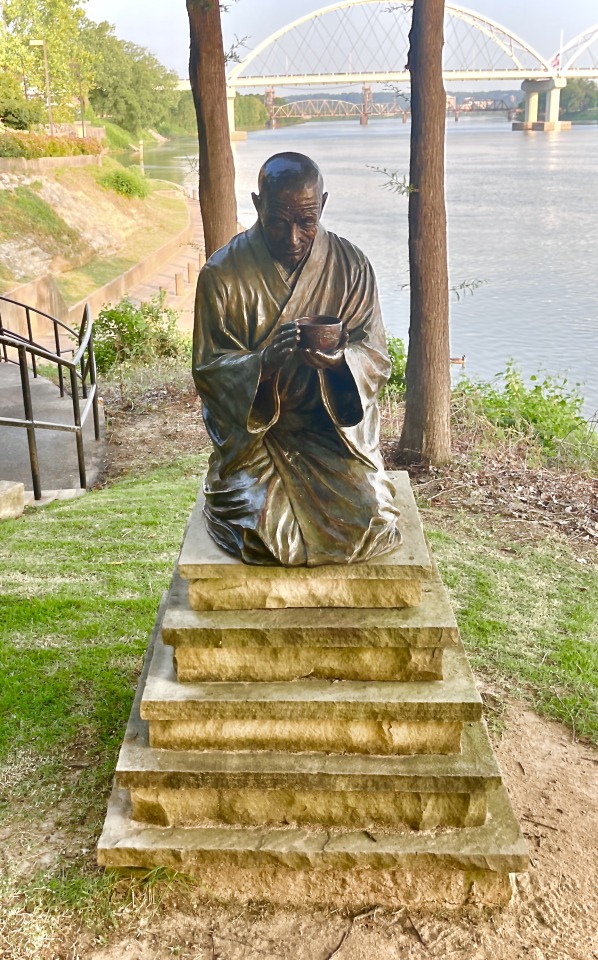
72 notes
·
View notes
Text
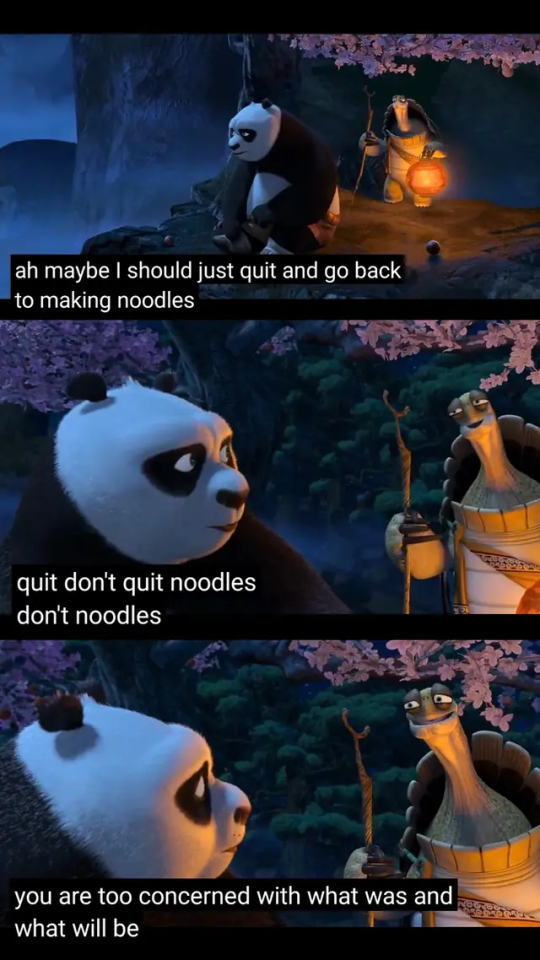
Famous quote by Master Oogway from the movie Kung Fu Panda ☯️
Zen Buddhism at its finest 🪷
#food for thought#quotes#think#philosophy#quote#human#life#life lessons#erudition369#kung fu panda#master oogway#zen#zen buddhism#thinking#thoughts#mindfulness#movie scenes#movies#moral#movie quotes#animation#dreamworks animation#animation movies#children#cartoon#film#cinema#yin yang#dragon warrior#self mastery
39 notes
·
View notes
Text
One might argue that the whole purpose of Zen Buddhism is to wake you up to this simple fact: this is your life. This is it. And that’s not a depressing thought, but a joyful one. This is it! This is my life!
Taylor Plimpton
43 notes
·
View notes
Text
Baby's First Meditation Retreat

…attention is prayer.
—Simone Weil
It would be simpler—the monastic life would be so much simpler. Wake, pray, meditate, do battle with the ego, eat, sleep—live such that everything inessential is stripped away. Why did you come here, I said, I’m tired of living a distracted life, of going through my days in a fog of unawareness.
In Cambridge, MA I attended a meditation retreat. I signed up on a whim, out of a vague feeling that I have lost control of my mind. I have been meditating very casually for the last nine years, mostly using the Calm app, listening to Tara Brach recordings, and attending guided meditations while a grad student. I had come to the practice out of desperation, in the midst of a debilitating depression that made me feel perpetually tormented by my thoughts. During that time, I would voraciously read every study I could find on depression treatments and tried basically every treatment modality out there: neurofeedback, ketamine, therapeutic yoga, medication, CBT, DBT, fish oil, an anti-inflammatory diet, psychedelics, and the “treatment” that ultimately saved me: intensive psychoanalysis four days a week. Meditation seemed a particularly promising and low-risk way to manage depression and anxiety—and yes, it did bring me some relief, working as a kind of supplement to the psychoanalysis. Even though I haven’t been as consistent about it as I would have liked, I continued to practice it regularly, usually for about 10-20 minutes a day. Not once have I regretted meditating, though when life gets busy it’s easy to tell yourself that you just don’t have the time to sit and do nothing, even though we seem to somehow always have the time to mindlessly surf the internet.
What is there to say. I’m just so tired of living on autopilot, of not having to face the moment, to face myself. There are a million ways to blot out one’s internal monologue, filling up our days with the background chatter of podcasts or social media.
The recrudescence of my Simone Weil mania has forced me to reflect on attention—that rare quality of mind which is increasingly in short supply. And yet everything is a matter of attention—not because attention can be instrumentalized to achieve one’s goals. No. Attention is the end in itself. Weil: “We have to try to cure our faults by attention and not by will.” It’s in that second-to-second awareness that reverence for the moment blossoms. The fog is lifting. Here is the trembling world, a cloud passing, the dancing light on the pavement as the sun passes through the rustling leaves of the tree. Weil: “Attention, taken to its highest degree, is the same thing as prayer. It presupposes faith and love.”
*
I landed in Boston late Friday night and early the next morning was off to the Zen center for the silent two-day retreat. I really did not know what to expect when I signed up. I knew a little about the different schools of Buddhism from studying it in a course as an undergrad. I remember being slightly afraid of “Zen” (or Chan) in particular because it seemed so severe to me. I imagined interminable zazen sessions, without guidance or visualizations; imagined slouching pupils getting whacked with sticks for bad posture or falling asleep. Yet surely if I were to test the Buddhist waters, I should do Zen/Chan since it is a specifically Chinese tradition? My father’s uncle was a Buddhist monk who wandered the mountains of China. I don’t know anything about him, other than his sister (my grandma) was devastated when he died after getting hit by a train. Whether it was suicide or just a manic pixie monk moment, I do not know.
*
Some meditation retreats are completely secular—they are just like a series of long, guided mindfulness sessions, with the context, rituals, and “religious” dimensions stripped away. This was not really that kind of retreat. There were robes, chants in Korean, elaborate meal rituals, and yes, getting whacked with a stick! Of course it is always possible to opt out of getting hit with the keisaku stick—I thought I would, but in the end I took the whacking almost every time it was offered, partly because it jolted me awake and relieved the tension building up in my body from hours and hours of sitting cross-legged on a cushion. The first couple of times the keisaku whacking was administered, I had to restrain myself from laughing. Oh my God, we’re getting whacked by a Buddhist master! In the orientation the instructor said it was for “tension release” but I did feel that it was something like a ritual of submission to the authority of the teacher, even if it didn’t really hurt. Watching how eagerly D. bowed to receive the stick in the orientation, I wondered if the Zen pupils were secretly sadomasochists.
Constitutionally, I am not a “joiner” and have an aversion to organized religion and anything that emits even a whiff of cult vibes. I’ve always been critical of authority and incapable of following rules, possibly because I didn’t have any growing up. But there was something soothing about how regimented everything was. We performed our actions in sync, chanted about emptiness at 4:30am. The whole experience felt almost militaristic, but a part of me enjoyed the austere, disciplinary atmosphere and the obsessive attention to detail. Not disciplinary in a punitive sense, but disciplinary in the way I imagine Russian classical music training to be: the methodical pursuit of self-mastery (it’s hardly surprising that the Zen master I received instruction from was a classically trained pianist). During the retreat I concluded that more discipline would be good for me.
Most of the retreat consisted of meditating in silence. There was no small talk, no psychobabble, no “now we will get started…”—he just hits the wooden clapper three times, and the sitting session starts. No guidance, no body-scan, no loving-kindness prompts. Just you, seated cross-legged on the cushion in silence, facing the tumult of your chaotic mind, your hands in the Dhyana Mudra position, your eyes half-closed.
It is a profound and difficult experience, having to face your own mind…both utterly banal and deeply disturbing, thoughts flitting from “maybe I should try to find a used bicycle on the OfferUp app” to thoughts of my parents’ mortality. I was warned by the Zen teacher that difficult emotions might bubble up. Thrice I broke out into tears and strained to regain my composure. It began during one of the short breaks, when I was lying on a bench outside looking up at the sky, imagining that a passing cloud was a life appearing briefly before dissipating. It was an unmediated confrontation with the eternal flux of the universe—pure panta rhei.
Weil: “Whatever frightful thing may happen, can we desire that time should stop, that the stars should be stayed in their courses? Time’s violence rends the soul: by the rent eternity enters.” Time’s violence has utterly and completely ripped apart my soul. I wanted to hold onto everyone and everything I love, for the stars to be stayed in their courses, for time to stop, for my parents to live forever. I thought about Mari Ruti’s rapid decline and death, about my recent visit to my older brother in prison, and my trip to my relatives’ assisted living home, where my mother’s cousin has been completely waylaid by the rapid onset of Parkinson’s disease. I thought about my father sitting down in the chair looking out the window at the assisted living home, talking about getting old, how his knees ache now. Time’s violence rends the soul.Will I be strong enough to face the eternal flux, the impermanence of everything I love, with a fierceness that borders on madness, grieving even the eventual death of the Sun? Sitting on the cushion meditating, crying: let go. Will I ever be able to let go with grace? Don’t know. Sink into don’t-know mind. Count the breath. Something passes through me.
What did I see, what did I hear—I heard every exhibit of the Museum of Jurassic Technology: the voice imploring us to follow the chain of flowers into the mysteries of life, the burbling waters of the miniature model of Iguazú Falls, a recording of David Wilson talking about exploding dice, the distant echoes of barks in the bestiary room, the mournful sound of the duduk in Djivan Gasparyan’s “Lovely Spring” playing the Sandaldjian room, Monteverdi’s “Lamento della Ninfa” as I ascend the stairs to the sublime courtyard, Bach’s “Ich ruf zu dir, Herr Jesu Christ” in the ‘Ecstatic Journey of Konstantin Tsiolkovsky’ exhibit (impossible not to see the levitation scene from Tarkovsky’s Solaris when hearing BWV 639), Mihály Víg’s “Valuska” in The Borzoi Kabinet Theater at the end of the day, and the sound of David’s nyckelharpa reverberating in the garden.
Now the birds of the mind are taking flight.
In, out. In, out. Return to the breath.
The mind opening like a door to the sky
a deep purple flower unfolding in the emptiness.
List everything you see, her feet standing on the lotus.
Clear mind
Clear mind
Clear mind
Don’t know.
(In) 1-2-3-4 (out) 5-6-7-8
Κύριε Ἰησοῦ Χριστέ ἐλέησόν με
The heart
The heart
The spherical heart of the manatee
Thoughts and thoughts and thoughts and thoughts
like waves, saturating the swash zone of the mind…
It’s the weekend of the Perseid meteor shower. Eight years ago, Ed and I watched them from the dock of a Maine pond. We had rented an Airbnb from a man with the same name as a dear poet friend of mine, Dana Ward. (I was dreaming of Dana when I woke up this morning.) A week after the Maine trip, I was at the mental hospital. I had forgotten I had a poetry reading. The woman organizing it called, wondering where I was.
Eight years have passed me in the blink of an eye.
Thoughts.
In
out
In
out
In 10-30 second intervals: nothing. Just the space between thoughts.
There were two states of non-self:
one of calm neutrality—just the is-ness of the world.
The other, something more ecstatic:
a mystical amnesia, when you become the contraction and expansion of the breath.
What is there to say about it? In my stead there was a heaving purple cloud floating in a black room.
Then, the “I” coheres again. Head so full of language, thinking about everything I want to write. “I shouldn’t be so attached to my thoughts.” The teacher says in the interview: it’s not about suppression.
Writers are fundamentally hoarders of thoughts. I try to collect each one, as the squirrel does the acorns. In my head I am writing an essay about the antidepressant withdrawals, my astonishment that I did not relapse as David Foster Wallace did when he committed suicide after tapering off his antidepressant. I remember when my thoughts were stuck on the “I want to die” loop, how Ed installed the ad blocker on my internet browser because he was disturbed by the suicide hotline targeted ads. I do not think such thoughts anymore. Maybe it is true—we are not our thoughts. They pass through my mind like water through the sieve. Did Woolf train herself to observe the stream? Too much thinking. I must be doing it wrong. Wrong again—I’m supposed to suspend judgment.
I hear my friend Tim saying, “the mathematics section is the most mystical part of the library.”
Then Weil says, “As soon as we have a point of eternity in the soul, we have nothing more to do but to take care of it, for it will grow of itself like a seed. It is necessary to surround it with an armed guard, waiting in stillness, and to nourish it with the contemplation of numbers…”
Now I’m thinking about the relationship between math and mysticism, about the Indian number theorist Srinivasa Ramanujan, who received, in his dreams, thousands of formulas from the Hindu Goddess Namagiri. Ramanujan: “An equation for me has no meaning unless it expresses a thought of God.”
I remember my poem “Umbra,” in which I reference the French mathematician Alexander Grothendieck’s strange book, La Clef des Songes (‘The Key of Dreams’). As one commenter puts it: “It’s a book about God. Grothendieck’s thesis is simple. We meet God in dreams. But we aren’t ourselves dreaming God, rather God Himself is dreaming us. Or better: according to Grothendieck ‘a Dreamer’ exists, an external force who ‘dreams our dreams’ and at the same time dreams us. And this force can only be God. … he declares, in a little footnote that it’s almost hidden, that mathematics wasn’t ‘created by God’ nor by man, but by an aspect of God’s nature that, unique among his attributes, is accessible to human reason.”
A week ago, I was telling Alex about Oppenheimer’s mysticism, his proficiency in Sanskrit and intensive study of the Bhagavad Gita, his “feeling for the mystery of the universe that surrounded him almost like a fog.” I watched Christopher Nolan’s Oppenheimer biopic with Alex—a mathematician/mathematical physicist—and my father—an almost-physicist who immigrated to the U.S. from Taiwan to do a physics PhD in Wyoming but dropped out after his first year to move to NYC to wait tables at a Chinese restaurant. After the film, we watched a documentary about Sir Isaac Newton’s heretical theology and alchemical studies, how he read the Bible as a cryptogram and determined the world will end in 2060.
Could there be a connection between mathematics and the capacity for the divine, between the abstraction of mathematical thinking and the ability to sense the invisible, to see the hidden points that connect disparate realms? Wasn’t Einstein a Spinozist?
Scraps of language jostle around in my mind like a shaking bowl of coins. Stupid thoughts like, “Lacan is to psychoanalysis as Zen is to Buddhism.”
I see myself thinking about the news, about geopolitics and the madness of nation states. China is preparing their population for war, as are we. A kind of nausea overcomes me, as I see the whole nuclear age unfurl before me.
We dwell on whatever we expose ourselves to, the articles we read, the people we see, the people we lurk online, the reflex to compare, to repeat the name of the Other like a mantra.
Everything you think you need, you don’t actually need.
A butterfly has somehow flown into the Dharma room. It flits on the floor in the middle of the room. The teacher scoops it up and brings it outside. She corrects my dreadfully sloppy attempt to perform the meal ritual. I panic because I’ve taken too much food and must eat every last crumb. The pear is not ripe, and it is a torture to eat the whole thing. The pear is not ripe—a Zen lesson! Mastication of the unripe pear, a kind of koan.
There was a short break. I decided to walk around Central Square, without a wallet or phone or headphones.
How can I describe the sense of aliveness I felt in that moment, that alert receptivity, when I looked at the sky and saw the birds of Central Square taking flight above the Greek Orthodox Church? I walked up the stairs—some ceremony is taking place inside. Down the streets, there’s a brunch spot I never knew about in the seven years I lived in this town. There’s the sound of a busker, so sweet, and a flower shop I wandered into. There’s the bus stop I would wait at on my way to psychoanalysis. I cross the street. Emanating from a building on Mass Ave is the rhythmic thud of Latin American music—it must be the music-dance sessions my ethnomusicologist friend told me about years ago.
Before dawn on the second day, we perform 108 prostrations. It turns my legs to Jell-O. When I walk up the stairs to use the bathroom, I have to grasp the banister to drag myself up. A few days later I can still barely walk from the soreness caused by the rapid-fire prostrations. Was there something off about my form? I noticed that the others relied more on their arms to hoist themselves up, while I relied almost exclusively on my legs.
And yet I quite enjoy prostrating myself. Outside of any religious or ritual context, I sometimes find myself spontaneously performing prostrations—to what or whom, I do not know. To the earth? I like to kiss the ground, to give thanks to this marvelous rock on which we all dwell.
*
The interview with the Zen teacher takes a bizarre turn: she asks me questions about DeSantis, in a ‘liberals-trying-to-commiserate’ kind of way. My hatred of DeSantis is bottomless—I had just flown in from Florida the night before the retreat. Please, anything but a DeSantis koan! She asks me if it annoys me that she has been correcting my attempt to execute the meal ritual. I say, No, I don’t mind being an amateur, and crack a joke about being an adult music learner. When the short interview is over, I return to the silence of the Dharma room.
Sitting in silence for long periods is much harder than it looks. Yet the second day feels easier than the first day, despite being on day three of almost no sleep. Toward the end of the retreat, I stare at a spot on the floor, convinced it is a moving bug. It jiggles and jerks, walks in a circle, but always seems to return to the same spot. I can’t stop observing the bug. At the end of the sit, I lean in to get a closer look only to realize it’s not a bug at all, but a dark spot in the wood flooring.
When the retreat is over, there’s the shock of hearing everyone’s voices, of realizing you had projected otherworldliness on people who are just people in the way you are just a person. We sit in a circle and take turns sharing our experiences. I say, “I came on a whim…because I watched YouTube videos about Buddhism with my dad.” We eat vegan pie at the table. The girlfriend of the man sitting next to me has come to meet him, with roses.
I grab my backpack, put on my Blundstones, and leave the center, in the soft afterglow of the mind’s clearing. What did it feel like: I had no desire to look at my phone. Turning on my phone was almost painful, and yet I needed to call the friend I was staying with. I met up with the religious studies poets, felt more present with others, more natural. We tried to go to the Harvard Film Archive to watch Ozu but were turned away for arriving late. We sat on a rooftop terrace to watch the sunset, with a view of the two spires of Harvard Yard, Memorial Church and Memorial Hall. Sun through the leaves, perceived crisply, as though a layer of mediation had been removed.
47 notes
·
View notes
Text
“However many holy words you read, however many you speak, what good will they do you if you do not act on upon them?”
~Buddha
#buddha#philosophy#philosophy quotes#existentialism#society#realism#zen quotes#zen buddhism#wise words#buddhism#life quotes#zen#reality
29 notes
·
View notes
Text
This is also the real secret of the arts: always be a beginner.
— Zen Mind, Beginner’s Mind by Shunryu Suzuki
221 notes
·
View notes
Text

#moon#gerard way#my chemical romance#abstract#photography#night sky#stars#full moon#emo#transcendentalism#quantum physics#physics#buddhism#zen buddhism#dao#esoteric#esoterism#mysticism
29 notes
·
View notes
Photo
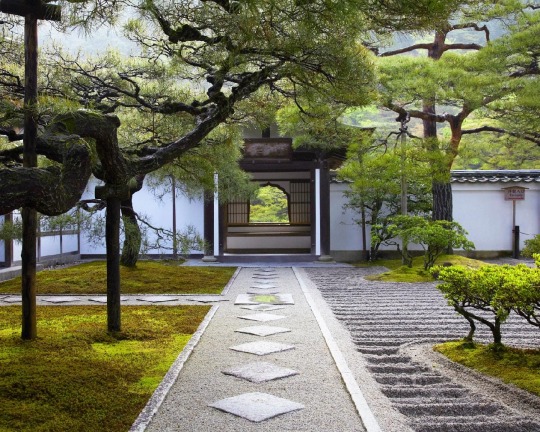
Garden pathways along the grounds of Ginkakuji Temple (銀閣寺) in Kyoto
Image from the temple’s official website
#buddhist temple#京都#kyoto#銀閣寺#ginkakuji#慈照寺#jishoji#臨済宗#rinzai#zen buddhism#japanese garden#landscape design
195 notes
·
View notes
Text
A Routine Self-Care / Healing Thing I Do
(And have done for a while. I'm mostly sharing it because I was thinking about it and its relation to other values and thoughts I have and felt like sharing it)
Temporarily denying access to a main coping tool
It sounds counter intuitive, but every so often - either when I want to develop myself more or when I feel like I am stuck for no particular reason and thus feeling as though my life has grown dull and empty - I look at what I spend most of my time doing, particularly to relax, and I say "hey for the next week, we aren't going to do that. Its still there, but that action is off limits" and I choose to limit the usage of whatever I usually spend my time doing
It can cause some stress and so I don't push myself to abide by it 100%, but I try to stick to it when I can, because I often find that when a dominating coping mechanism and time sink is removed, there opens up a vacuum and that vacuum serves to provide a lot of opportunity to introduce new habits, new skills, and see life in a more creative and open manner.
It causes a mild amount of adjustment stress, but so long as the coping mechanism is still there to return to (and you let yourself dabble if it ever gets too stressful with the interest of still minimizing usage) that adjustment stress is a small payment for experiencing new things and being able to expand the things that you can self sooth with.
Not only is this helpful for having diversified coping strategies and introducing healthier habits, but it also practices and helps reinforce to the emotional / trauma brain that sometimes when things that we love and are used to regularly using to sooth aren't available, that we are okay and able to manage with other coping tools - including ones we haven't acquired. It reinforces the idea that even without our familiar coping tools, the world has a lot of things out there that can fill the role as something soothing.
And when you practice the unavailability of preferred coping tools in a space where they aren't ACTUALLY 100% unavailable, you can practice and develop the tolerance to that lack of access in a space where you still have control how much you can tolerate
Then, when life makes it so that something you prefer to cope with is unavailable, you have built up a better relationship with yourself, the world, and coping to feel a little more safe waiting until your preferred coping is available again; because you do this regularly when the access is in your hands. You've survived it multiple times, because its just part of your daily life and practice. Sometimes you don't have what you usually use to meet your needs, and that's okay. There's plenty in the world out there.
#coping#mental health#mental health recovery#ptsd#did#actuallydid#actuallyautistic#actually autistic#coping skills#buddhism#zen buddhism#spoiler for those reading the tags#I realized this is something Ive been doing most of my healing journey that is very much rooted in a lot of zen buddhist principles#the idea that when we can find ourself numb and detatched or overstimulated and oversaturated with Stuff#that we get comfortable and attached to Stuff that we no longer really see the wide expanse of choices we have in existence#and thus every so often it is a good idea to remove excess#remove stuff and preferred attachments and just enjoy what is innate to your existence#what is innate to what is around you#and learn that there is always something in the world there to help you and make sure you are okay#buddhist rambles
11 notes
·
View notes
